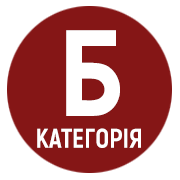ADULT FOREIGN LANGUAGE LEARNING AS A PART OF NORMATIVE CULTURE OF MODERN SOCIETY
DOI:
https://doi.org/10.32782/2410-2075-2024-19.13Keywords:
adult learners, adult students, teaching/learning foreign languages, normative culture, foreign languageAbstract
The article examines the growing importance of adult foreign language learning as a key component of contemporary social and cultural norms. In today’s globalised world, language acquisition transcends mere communication, serving as a vital tool for personal growth and professional success. Proficiency in multiple languages reflects individual ambition and aligns with societal values such as adaptability, cultural empathy, and social mobility. The primary goal of the article is to analyse the sociocultural and psychological factors that influence adult language learning within the framework of modern normative culture, which made knowing foreign langue as its part. It explores how acquiring a new language fosters personal development, expands career opportunities, and strengthens social cohesion. The article’s originality lies in its holistic approach, integrating perspectives from cultural studies, psychology, and education to offer a comprehensive view of adult language learning within the norms of contemporary culture. The findings reveal that learning a foreign language significantly enhances social mobility, cultural understanding, and personal empowerment. It enables adults to navigate diverse cultural contexts and engage meaningfully with global challenges. However, the study also highlights key obstacles faced by adult learners, including cognitive limitations associated with aging, balancing multiple responsibilities, and societal pressures to achieve fluency quickly. Adult language learning is portrayed as a critical element of lifelong education, fostering adaptability in personal and professional spheres, and brings societal benefits of enhancing language skills among adults, such as increased social capital and the ability to thrive in multicultural environments.
References
Benasso S., Bouillet D., Neves T., Amaral M. Landscapes of Lifelong Learning Policies across Europe. Palgrave Studies in Adult Education and Lifelong Learning. Palgrave Macmillan Cham, 2022. 248 р. https://doi.org/10.1007/978-3-030-96454-2_1.
Bovolenta G., Marsden E. The effect of verb surprisal on the acquisition of second language syntactic structures in adults: An artificial language learning study. Applied Psycholinguistics. 2024. # 45(1). P. 110–137. https://doi.org/10.1017/S0142716423000334.
Chiu C., Gelfand M., Harrington J., Leung A., Liu Z., Morris M., Mu Y., Shteynberg G., Tam K., Wan C., Zou X. A conclusion, yet an opening to enriching the normative approach of culture. Journal of Cross-Cultural Psychology. 2015. #46(10). P. 1361–1371. https://doi.org/10.1177/0022022115614201.
Church J. Exemplary Lives and the Normative Theory of Culture. American Journal of Political Science. 2019. #63(2). P. 439–451. https://doi.org/10.1111/ajps.12418.
Dornyei Z., Ryan S. The Psychology of the Language Learner Revisited. Routledge. 2015. 274 p. https://doi.org/10.4324/9781315779553.
Eguz E. Learning a second language in late adulthood: benefits and challenges. Educational Gerontology. 2019. # 45. p. 701–707. https://doi.org/10.1080/03601277.2019.1690273.
Han Zh., Bao G. Critical period in second language acquisition: The age-attainment geometry. Social Physics and the Dynamics of Second Language Acquisition. 2023. # 11. https://doi.org/10.3389/fphy.2023.1142584.
Interesting modern jobs that need foreign languages proficiency. Official site of International Center for Language Studies. 2024. URL: https://www.icls.edu/blog/interesting-modern-jobs-that-require-secondlanguage-proficiency.
Nagel D. 7 Excellent Career Ideas For Language Learners. Official site of Student Affairs Pitt Career Center. 2024. URL: https://careercentral.pitt.edu/blog/2024/01/18/7-excellent-career-ideas-for-languagelearners/.
Nilsson J., Berggren R., Garzon B., Lovden M. Second Language Learning in Older Adults: Effects on Brain Structure and Predictors of Learning Success. Aging Neurosci. 2021. # 13. https://doi.org/10.3389/fnagi.2021.666851.
Renan S. Political liberalism and the metaphysics of languages. Critical Review of International Social and Political Philosophy. 2023. https://doi.org/10.1080/13698230.2023.2239618.
Steber S., Rossi S. The challenge of learning a new language in adulthood: Evidence from a multimethodological neuroscientific approach. PLoS ONE. 2021. # 16(2). https://doi.org/10.1371/journal.pone.0246421.
Van Sickle K. Learning a New Language at Age 40+. Medium. 2017. URL: https://medium.com/@keith. vansickle/learning-a-new-language-at-age-40-588dd4e50492.
Zilberman A. Why adults struggle to learn a second language. eLearning Industry. 2019. URL: https://elearningindustry.com/adults-learn-a-second-language-struggle.







